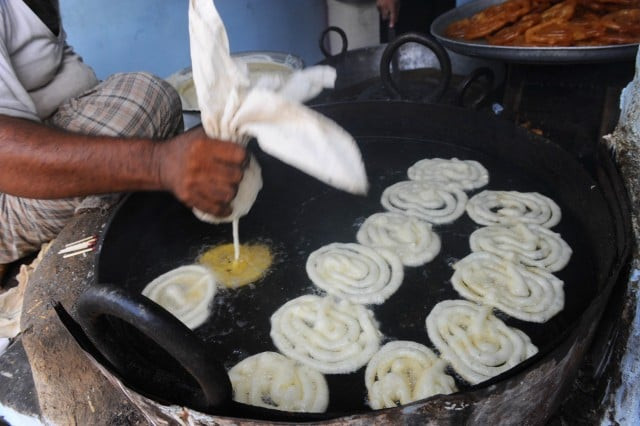Ever wonder what Ramazan is like in America, with 14-hour long fasts, and store-bought parathas?
Here are the three things on my mind this Ramazan, and what I miss most about home:
1. Mothers
From the first sehri of the first roza to the final iftaar before Eid, I see my mother everywhere. As a child, I always woke up to my mother's soft nudge an hour before sunrise. I vividly remember avoiding the cold tiles of the kitchen floor by wearing bright, layered socks, with Mama shouting in the background, “put on your shoes, you’re going to get sick!”
Mama embraced the schedule adjustment I despised, racing against sunrise to fill up her three children with a combination of what seemed like breakfast, lunch, dinner and enough dessert for three meals. Mealtimes in the Khan family were always full of uproarious laughter, but Sehri was always a quiet meal, one built for reflection.
Mama would ask us about our goals for the month, but we would mumble incoherent answers to ourselves, complaining instead about tests and teachers. Shuffling back into our bedrooms with heavy eyes and full stomachs, she reminded us to pray as the sun rose - basking in the few moments of silence before the day began and the fast grew harder.
Today, I sit on my kitchen counter, awoken by one of the iPhone's nine alarm options, wanting to talk to her in more detail about all the questions she had asked years ago- questions I had been unwilling to answer. I miss you Mama. I wear my slippers to Sehri now.
2. Fifteen Minutes Before Iftaari
My favorite and least favorite part about Ramazan in Lahore was always fifteen minutes before iftaari. Minute number one always started with a traffic jam. Obnoxiously loud horns in the midst of even louder calls to prayer scattered angst-ridden teenagers out of school and into their cars. Drivers cursed under their breath dreaming of warm chai, screaming at the car in front of them holding up all of Mall Road for a bag of spiced corn sold outside Aitchison College.
As Pakistanis, we function in the sphere of waiting till the last minute, but in Ramazan we take this further to really the very last fifteen minutes. It is in these fifteen minutes that we must pick up our brothers from school, call the tailor about our outfits for Eid and make last-minute iftaari plans. Attention spans diminish from the usual five minutes to a few short seconds and formalities slip through droopy eyes too tired to make the mandatory societal eye contact. What should be a time for reflection after a daylong fast becomes a positive mess.
In America, I travel home with my well-fed colleagues. Nothing is last minute, no one is honking loudly, and restaurants are not jam-packed with angry teenagers. Instead, I face the questioning expression of the restaurant owner who realizes my order is more than a hearty meal fit for a twenty-something working woman. My thoughts are often lost in the *slish slosh* of the mop as the storefront cleans up after the 7pm dinner crowd.
In the glaring silence, I miss my fifteen minutes on Mall Road.
3.The Strength of the Peripheral
In Pakistan, you pay a high price to be different. If you choose not to fast, you suffer the not so subtle disdain of those around you. Ramazan is inherent to your identity as a Muslim, and while I personally believe it has great merit, we have no right to lecture others about what they should or should not do. In America, your religious choices are peripheral, not inherent to your identity. Here, people go out of their way to accommodate differences. Banks set up prayer rooms and employers make sure you are home in time to break your fast.
“What is the history behind Ramazan? Can I fast with you?” they ask naively.
Americans are inquisitive about difference, not dogmatic. The collaborative strength of bringing a different history to a large, but varied landscape is the value of America. I only wish that the self-restraint we so confidently tout in Pakistan, led to a period of self-reflection that spanned beyond the symbolic 30-day period we have so eagerly commercialized.
It’s not about whose pakoras are bigger or browner.
Ramazan should begin, not end with Eid; it should force us to look inward and ask ourselves who we have become as people, as Pakistanis and as citizens of the world.
Fasting in America
Today, I sit on my kitchen counter, awoken by one of the iPhone's nine alarm options, missing Ramazan in Pakistan.



COMMENTS
Comments are moderated and generally will be posted if they are on-topic and not abusive.
For more information, please see our Comments FAQ